Iran, UN agree on replacing nuclear site's damaged cameras
3 min readTEHRAN: Iran and a UN watchdog said Wednesday they have reached agreement on replacing cameras at a nuclear complex, as Western powers warn time is running out to revive a deal on Tehran's atomic programme.
The Vienna-based International Atomic Energy Agency (IAEA) had been seeking to replace the devices which Iran says were damaged in a June attack it blames on Israel.
The IAEA "will soon install new surveillance cameras at Iran's Karaj centrifuge component manufacturing workshop under an agreement reached today by Director General Rafael Mariano Grossi and the Head of the Atomic Energy Organization of Iran, Mohammad Eslami," an IAEA statement said, calling this "an important development".
It added that the two sides "will continue to work on remaining outstanding safeguards issues with the aim of resolving them".
Earlier this year Iran began restricting some IAEA inspection activity as part of steps it has taken away from the 2015 nuclear deal with world powers after the United States unilaterally pulled out in 2018 and reimposed crippling sanctions on Tehran.
"In a gesture of goodwill, Iran is allowing the IAEA to install new cameras to replace those damaged in a sabotage operation" against the Karaj nuclear site, said Iran's Nour news agency, considered close to the Islamic republic's Supreme National Security Council.
"This is a voluntary action by Iran to end misunderstandings in its relations with the IAEA," it said.
Grossi held talks in Tehran last month aiming to tackle the constraints on inspections, outstanding questions over the presence of undeclared nuclear material at sites in Iran, and the treatment of IAEA staff in the country.
Those talks were "inconclusive" but "constructive," he later said, just before talks resumed between Tehran and several global powers to revive the 2015 agreement which aims to prevent Iran from building an atomic bomb.
"Due to the completion of the safety investigation of the damaged cameras, as well as the agency's decision to condemn the sabotage in the TESA complex and to accept the technical inspection of the cameras by Iranian experts before their installation, Iran has authorised the agency to replace the damaged cameras with new ones," the Nour report said.
The development was also reported by other Iranian news agencies.
'Precious time'
Iran accuses its arch foe Israel of being behind the attack on the TESA Karaj centrifuge component manufacturing workshop on June 23.
At the time, it had said it thwarted the attack on the building without identifying the nature of the incident.
Until Wednesday, Iran had turned down the IAEA's requests to replace the cameras.
Negotiations resumed on Thursday last week to try to revive the 2015 deal under which Iran pledged to reduce its nuclear capabilities -- under IAEA supervision --- in exchange for sanctions relief.
On Monday diplomats from Britain, France and Germany -- among the nations negotiating with Iran -- said "real negotiations" have yet to start.
"We are losing precious time dealing with new Iranian positions inconsistent with the JCPOA or that go beyond it," they said, referring to the 2015 agreement.
On Tuesday the top US diplomat, Secretary of State Antony Blinken, referred to the European statement and said Washington was preparing "alternatives" in case the Vienna talks fail.
On Tuesday an Iranian government spokesman said an agreement could be reached "quickly" if the Western states were serious about sanctions lifting and stopped making "threats".
Among the key sticking points are precisely which sanctions Washington will lift and the guarantees demanded by Iran to safeguard against future changes of heart from the US.
Iran says it only wants to develop a civilian capability but Western powers say its stockpile of enriched uranium goes well beyond that, and could be used to develop a nuclear weapon.
The Islamic republic has always denied wanting a nuclear arsenal.
For the latest news, follow us on Twitter @Aaj_Urdu. We are also on Facebook, Instagram and YouTube.







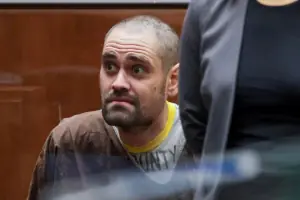







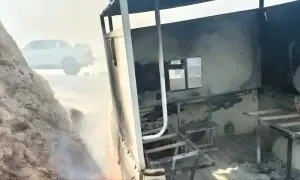
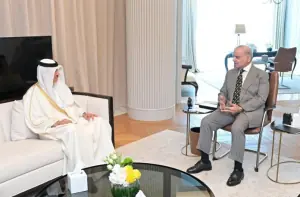
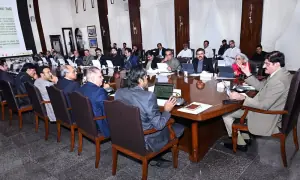
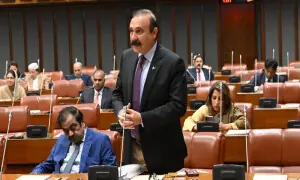
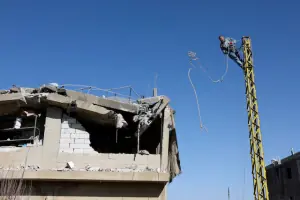

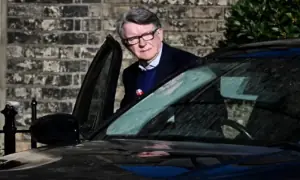
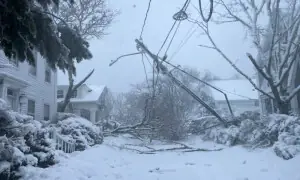
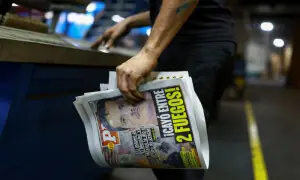
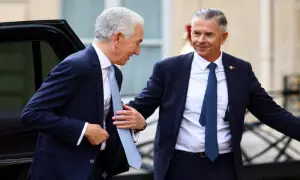
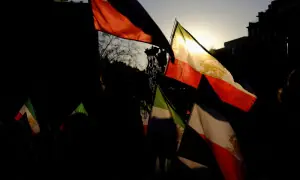
Comments are closed on this story.